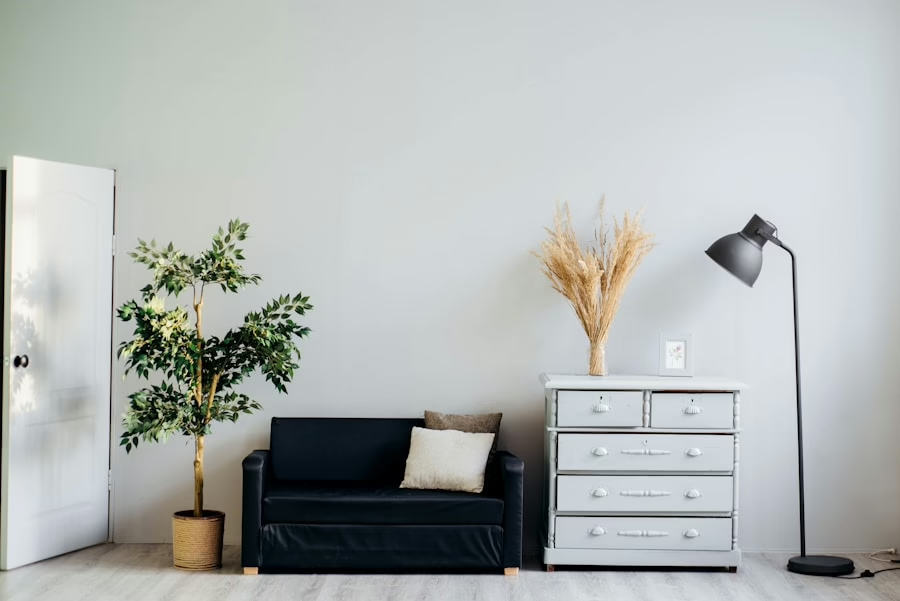Minimalism is often perceived as a lifestyle choice characterized by the intentional reduction of possessions and distractions. At its core, minimalism advocates for a life focused on what truly matters, stripping away the excess that can cloud our judgment and hinder our happiness. This philosophy encourages individuals to evaluate their belongings, commitments, and even their thoughts, fostering a sense of clarity and purpose.
The minimalist movement has gained traction in recent years, with many people seeking to escape the consumerist culture that promotes accumulation over appreciation. The roots of minimalism can be traced back to various philosophical and artistic movements, including Zen Buddhism and the Bauhaus design philosophy. These influences emphasize simplicity, functionality, and the beauty of essential forms.
In contemporary society, minimalism has evolved into a broader lifestyle choice that encompasses not only physical possessions but also mental and emotional clutter. By embracing minimalism, individuals can cultivate a more meaningful existence, focusing on experiences rather than material goods.
Key Takeaways
- Minimalism is about simplifying your life and finding joy in less.
- Understanding the concept of minimalism involves focusing on what truly matters and letting go of excess.
- Embracing a minimalist lifestyle can lead to benefits such as reduced stress, increased clarity, and more time and energy for what’s important.
- Practical tips for decluttering and simplifying your space include starting small, setting specific goals, and being mindful of what you bring into your home.
- Finding joy and contentment in minimalism involves appreciating the present moment, practicing gratitude, and prioritizing experiences over possessions.
Benefits of Embracing a Minimalist Lifestyle
Adopting a minimalist lifestyle offers numerous benefits that extend beyond mere aesthetics. One of the most significant advantages is the reduction of stress and anxiety associated with clutter. A simplified environment can lead to a clearer mind, allowing individuals to concentrate on their priorities and goals.
Studies have shown that clutter can negatively impact mental health, leading to feelings of overwhelm and distraction. By minimizing physical possessions, individuals can create a serene space that promotes relaxation and focus. Moreover, minimalism encourages financial freedom by promoting mindful spending habits.
When one prioritizes quality over quantity, it becomes easier to make informed purchasing decisions. This shift in mindset can lead to significant savings over time, as individuals learn to appreciate what they already have rather than constantly seeking new acquisitions. Additionally, minimalism fosters a sense of gratitude and contentment, as individuals learn to find joy in experiences and relationships rather than material possessions.
Practical Tips for Decluttering and Simplifying Your Space
Embarking on a decluttering journey can seem daunting, but breaking it down into manageable steps can make the process more approachable. One effective method is the “one in, one out” rule, which encourages individuals to let go of an item for every new item they bring into their home. This practice not only helps maintain a clutter-free environment but also instills a sense of responsibility regarding consumption.
Another useful strategy is to tackle one area at a time, such as a single room or even a specific category of items like clothing or books. When decluttering, it is essential to ask oneself critical questions about each item: Does it serve a purpose? Does it bring joy?
If the answer is no, it may be time to part ways with that item. Donating or selling unwanted possessions can also provide a sense of fulfillment, knowing that these items may benefit someone else. Additionally, creating designated spaces for essential items can help maintain organization and prevent future clutter from accumulating.
Finding Joy and Contentment in Minimalism
The journey toward minimalism is not solely about reducing possessions; it is also about discovering joy in simplicity. By focusing on experiences rather than material goods, individuals can cultivate deeper connections with themselves and others. Engaging in activities such as hiking, reading, or spending quality time with loved ones can bring immense satisfaction without the need for excessive consumption.
This shift in perspective allows individuals to appreciate the beauty of everyday moments and find fulfillment in the present. Furthermore, minimalism encourages individuals to prioritize their values and passions. By eliminating distractions and unnecessary commitments, one can dedicate more time to pursuits that genuinely resonate with them.
This newfound clarity often leads to increased creativity and personal growth, as individuals explore their interests without the weight of excess baggage holding them back. Ultimately, embracing minimalism can lead to a more joyful and contented life.
Minimalism and Mental Well-being
The relationship between minimalism and mental well-being is increasingly recognized in psychological research. A cluttered environment can contribute to feelings of anxiety and overwhelm, while a minimalist space promotes tranquility and focus. By simplifying one’s surroundings, individuals often experience a reduction in stress levels, leading to improved mental health outcomes.
The act of decluttering itself can be therapeutic, providing a sense of accomplishment and control over one’s environment. Moreover, minimalism encourages mindfulness—a practice that has been shown to enhance emotional resilience and overall well-being. By being present in the moment and appreciating what one has, individuals can cultivate gratitude and reduce feelings of dissatisfaction.
This mindful approach fosters a positive mindset that can significantly impact mental health, allowing individuals to navigate life’s challenges with greater ease.
Embracing Minimalism in Your Relationships and Social Life
Deeper Connections through Prioritization
In today’s world, where social media often promotes superficial connections, embracing minimalism can lead to more meaningful relationships. By prioritizing quality over quantity in friendships, individuals can invest their time and energy into nurturing deeper connections with those who truly matter.
A Stronger Support Network
This shift can lead to more fulfilling social interactions and a stronger support network. Additionally, minimalism encourages individuals to evaluate their commitments and obligations. By learning to say no to activities or relationships that do not align with their values or bring joy, individuals can create space for more enriching experiences.
Authenticity and Genuine Connections
This intentional approach to social life fosters authenticity and allows for genuine connections to flourish.
Overcoming Challenges and Obstacles on the Path to Minimalism
While the benefits of minimalism are compelling, the journey toward simplification is not without its challenges. One common obstacle is the emotional attachment many people have to their belongings. Sentimental items can be particularly difficult to part with, as they often carry memories or associations that are hard to let go of.
To navigate this challenge, it can be helpful to focus on the memories themselves rather than the physical objects that represent them. Taking photos or creating a memory box can allow individuals to preserve cherished moments without retaining unnecessary clutter. Another challenge is societal pressure to conform to consumerist norms.
In a culture that often equates success with material wealth, embracing minimalism may feel countercultural or isolating. However, finding a supportive community—whether through online forums or local groups—can provide encouragement and motivation on this journey. Sharing experiences with like-minded individuals can help reinforce the values of minimalism and create a sense of belonging among those who prioritize simplicity over excess.



